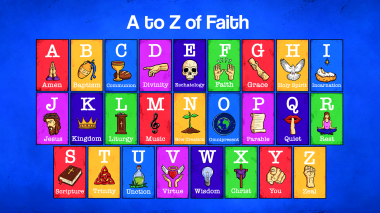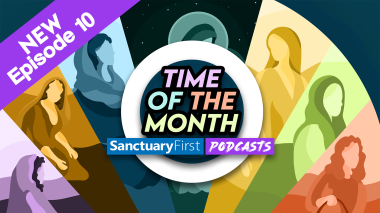Enough is enough

2 Chronicles 28: 9-15
9 But a prophet of the Lord named Oded was there, and he went out to meet the army when it returned to Samaria. He said to them, ‘Because the Lord, the God of your ancestors, was angry with Judah, he gave them into your hand. But you have slaughtered them in a rage that reaches to heaven. 10 And now you intend to make the men and women of Judah and Jerusalem your slaves. But aren’t you also guilty of sins against the Lord your God? 11 Now listen to me! Send back your fellow Israelites that you have taken as prisoners, for the Lord’s fierce anger rests on you.’
12 Then some of the leaders in Ephraim – Azariah son of Jehohanan, Berekiah son of Meshillemoth, Jehizkiah son of Shallum, and Amasa son of Hadlai – confronted those who were arriving from the war. 13 ‘You must not bring those prisoners here,’ they said, ‘or we will be guilty before the Lord. Do you intend to add to our sin and guilt? For our guilt is already great, and his fierce anger rests on Israel.’
14 So the soldiers gave up the prisoners and plunder in the presence of the officials and all the assembly. 15 The men designated by name took the prisoners, and from the plunder they clothed all who were naked. They provided them with clothes and sandals, food and drink, and healing balm. All those who were weak they put on donkeys. So they took them back to their fellow Israelites at Jericho, the City of Palms, and returned to Samaria.
Deep in the annals of the Hebrew scripture there is an almost obscure story, it’s a ghastly chapter, but it’s nothing if it isn’t honest about the way people behave in battle.
It’s the story of King Ahaz who has just suffered an horrendous defeat; who knows how many were lost in this battle? It is a story of Passchendaele proportions, with a human cost reminiscent of the terrible campaigns of the First World War. A huge gallery of prisoners of war were being brought back to Samaria. They were to be sold into slavery and put to forced labour. But in this story there is the lone voice of a prophet of God, his name is Oded, and against all the prevailing passions of the day he says what most folk think is ridiculous and weak and foolish. He says, “Set the prisoners free.”
Here is a man who is prepared to acknowledge that there are complex reasons for conflict and when he assesses the whole calamity - he is not blind to his own nation’s guilt and to humanity’s common guilt in the things that bring us to conflict as a means of settling our differences.
He’s probably seen it before and knows that sometimes, enough is enough. There is a greater victory still; and that is the victory of compassion over triumphalism. This is what the Bible teaches us even if history does not. That in solemn remembrance we do not glory in war. He was able to see through victory and still remember that those who had been his enemies were human too, with families, with agonies, with loss and with lives to rebuild.
So I leave this set of reflections where it began with the observation – that you do not have to make peace with your friends, you have to make peace with your enemies. And you cannot make peace with your enemy unless you talk to them while they are still your enemy.
Almighty God in this season of solemn remembrance teach us to learn lessons from the past. When tempted to repeat the endless cycles that lead to conflict and war, remind us that sometimes “enough is enough”. Forgive us for the part that each of us plays in harbouring the stuff that makes for conflict and give to us the grace and goodness that helps us to live at peace with ourselves, with others and with God. Amen.




 Add to Favourites
Add to Favourites








Login to comment.